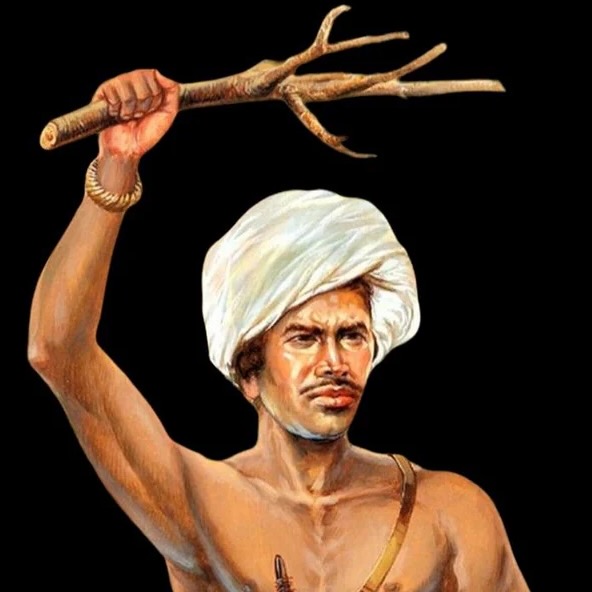Birsa Munda

Birsa Munda was born on 15 November 1875 in Ulihatu, Bengal Presidency, to the Munda tribe. As a young boy, he herded sheep, played the flute, and was full of life. Due to poverty, Birsa was sent to live with his maternal uncle in Ayubhatu, where he attended a German Missionary School. However, he had to leave the school after he questioned the Jesuit teachers who ridiculed tribal culture.
Birsa later met Swami Anand Pandey, who introduced him to Hindu teachings. People began to believe that Birsa had magical powers, which helped him gain influence among the tribal communities. He rejected old superstitions and encouraged the tribals to return to their traditional religious practices. Many tribals who had converted to Christianity returned to their original beliefs because of his influence.
At the time, the British government had implemented the Madras Forest Act of 1882, restricting tribal access to forests and taking away their land rights. Birsa urged the tribals to stand up against these injustices. Although he was arrested for two years, he continued to fight upon his release, forming a guerrilla army to resist British rule. This led to the famous Munda revolt, known as Ulgulan (the Great Tumult), in 1899. Using guerrilla tactics, the tribals launched attacks on police stations and set fire to properties.
The rebellion was short-lived as the British retaliated with force, killing many tribal warriors. Birsa escaped but was later betrayed, arrested, and sent to prison. It is believed he was poisoned in jail and died at just 25 years old. Despite his early death, Birsa’s legacy lived on, forcing the British to enact the Chota Nagpur Tenancy Act in 1908, which protected tribal lands.
Trivia : The tribals revered Birsa Munda as a God and lovingly called him Dharti Abba, meaning “Father of the Earth.”
References:
- Birsa Munda - Live History India
- Birsa Munda - Jagran Josh
- Birsa Munda: The Protagonist of Tribals - Gaon Connection